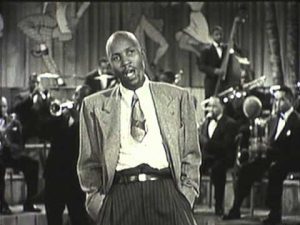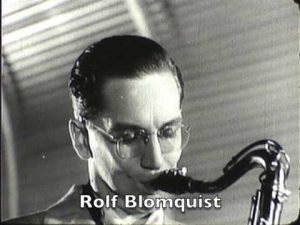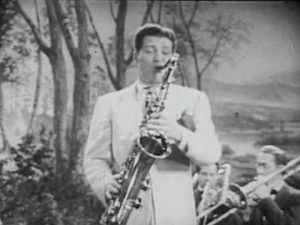I never got to know Bud Shank or Bill Perkins particularly well, although I saw them often at Donte’s, Shelly’s, The Lighthouse and other Los Angeles clubs. I did get a chance to chat with the two of them before a panel discussion at one of Ken Poston’s early jazz events. I asked Bud about his soundtrack contribution in two 1950s surf films, SLIPPERY WHEN WET and BAREFOOT ADVENTURE, and he pretty much shrugged them off as “a day’s pay for a day’s work.” For some reason, I then raised the subject of jazz musicians playing behind “beat poets,” and Perkins pointed out that, once again, this was largely just a welcome means to a paycheck. He continued that most professional jazz musicians would be happy to record with poets like Allen Ginsberg, Jack Kerouac Kenneth Rexroth or Lawrence Ferlinghetti, but that this was usually not a preferred means of musical expression. However, Shank pointed out, they did respect the poets and what they were doing, but just preferred to play their bebop unencumbered by the spoken word.
Beat poets or comics show up on occasional in a feature film or short subject — PULL MY DAISY from 1959, with Jack Kerouac, Allen Ginsberg and Gregory Corso is a film of some note; for those who are interested in this important film, it can be found on You Tube.
Beat poets, by their very physical appearance and overly earnest approach, lent themselves to satire. One of the best films to approach the beatnik movement with tongue in cheek is the classic Roger Corman feature BUCKET OF BLOOD. The entire film is just an hour long, and since it has fallen into the public domain, it can be found on You Tube, or for pennies at Amazon. Our poetry/jazz performance here is actually seen and heard behind the opening credits. The musical director of the film is Fred Katz, and he selected Paul Horn to provide the unaccompanied alto sax solo behind a very funny poetic recitation by actor Julian Burton.
“Creation is. All else is not. What is not creation is Graham crackers.”
Indeed!



